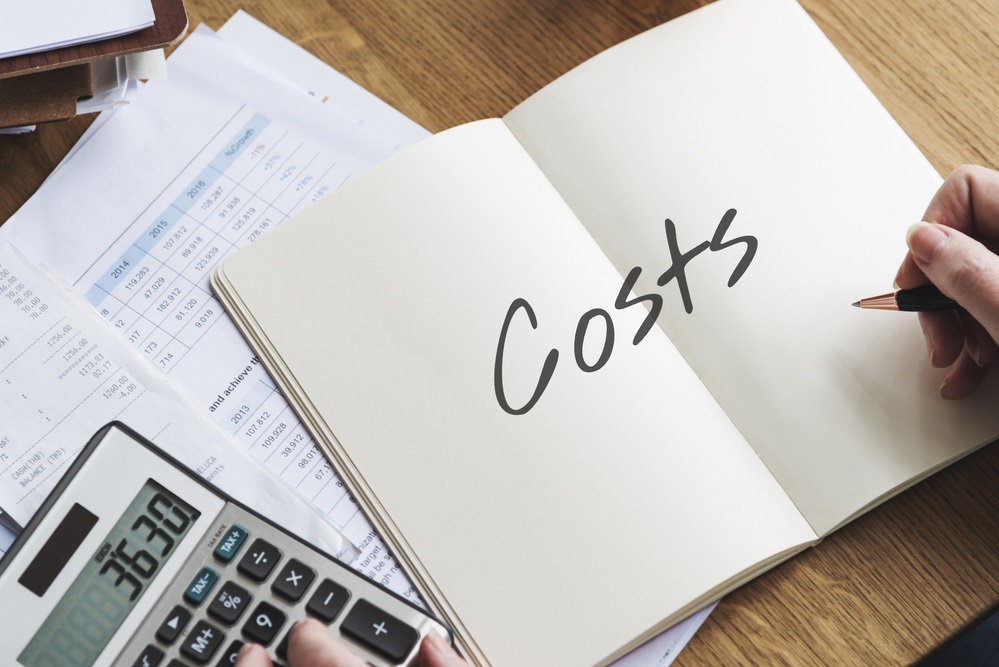
01 Jul What Are Court Costs and When Are They Recoverable?
In the last two blogs Edwards Law discussed why you and your company should always include a litigation clause in your business contracts, and why attorney fees may not be recoverable if you fail to include the correct language in your litigation clause or if it is precluded by statute. This week we dive into court costs—what they are and when they are recoverable.
When Are Court Costs Recoverable?
In Colorado, a number of rules provide for an award of court costs in connection with litigation. Court costs are different than attorney fees, and involve the costs of filing a lawsuit with the court.
Courts most often rely on Rule 54(d) of the Colorado Rules of Civil Procedure when they award court costs. Under Rule 54(d), unless there is an express provision in either a statute or in the rules of civil procedure, the court must allow an award of “reasonable” costs to the prevailing party, and will generally consider the needs and complexity of the case and the amount in controversy.
There are only a handful of other rules providing for the award of court costs, including: (1) an award of reasonable expenses as sanctions for failure to make disclosure or cooperate in discovery under Rule 37; (2) voluntary dismissal on payment of costs under Rule 41; (3) liability for costs for failure to execute a quitclaim deed on request under Rule 105; and (4) costs and reasonable attorney’s fees in connection with contempt proceedings under Rule 107.
There are also several statutory sections found in Article 16 of Title 13 which provide for the award of costs, including:
- to prevailing plaintiffs;
- to prevailing defendants;
- to a party/parties successfully asserting a motion to dismiss;
- when several matters are pleaded;
- on several counts;
- to defendants when plaintiff’s actions are dismissed for irregularity or plaintiff’s failure to prosecute;
- to defendants obtaining dismissal of plaintiffs’ tort claims under Rule 12(b) of the Colorado Rules of Court (the award is mandatory under this statute);
- for dismissal of a bill in equity;
- in suits commenced in the name of one person for the use of another;
- to a prevailing adverse claimant in an application for patent under the US mining laws; and
- to plaintiffs or defendants under the Colorado “offer of settlement” statute, which shifts the burden of costs, but not attorneys’ fees, to the party who rejects a formal offer of settlement and then fares worse at trial (the award is mandatory if the costs are reasonable).
What Court Costs Are Recoverable?
None of the Rules discussed above contain a definition of awardable costs. However Colorado courts often look to the list provided in Section 13-16-122 to determine the amount of costs to award. This list specifies items parties may normally recover as costs, but it is illustrative and not exhaustive. Unless there is a specific legal prohibition, courts have discretion and are not bound to award every item listed under Section 13-16-122. Nor are they precluded from awarding items that are not listed.
Typical recoverable items include:
- docket fees;
- jury fees;
- sheriff fees (including expenses related to serving and returning summons or other writs; serving and returning witness subpoenas; services related to levies and executions; attending court; taking, approving, and returning bonds in legal proceedings; and mileage related to the performance of specific services);
- court reporter fees;
- witness fees and mileage;
- approved expert witness charges (considering the value of the time employed by the expert; and the degree of learning or skill required);
- copy fees;
- deposition costs for perpetuation of testimony (including: reporters fees; witness fees; expert witness fees; mileage for witnesses; and sheriff’s fees for serving necessary subpoenas);
- costs for a discovery deposition if the deposition is found to be reasonably necessary for the development of a party’s case or the deposition is used in lieu of live testimony (for example, depositions used as summary judgment evidence);
- attorney fees when allowed by court order, statute, or fee-shifting agreement. When a court awards fees pursuant to a statute or rule, or where they result from a contractual fee-shifting agreement, a court normally treats the fees as costs;
- fees for service of process; and
- publication costs.
Other Litigation Costs and Expenses
A third recovery category includes litigation costs and expense other than attorneys’ fees and traditional court costs. Colorado courts have considerable discretion in determining whether to award types of costs and amounts, unless a statute or rule prohibits such an award. The key test for the recoverability of a specific expense is whether the expense was necessarily incurred due to the litigation and for the proper preparation for trial.
Examples of “other expenses” for which Colorado courts have allowed recovery include:
- The cost of computerized legal research;
- mandatory settlement conference costs;
- costs for expediting the depositions of medical witnesses who were not available to testify at trial;
- exhibits, copies, and deliveries of litigation materials;
- mileage, parking, and long-distance telephone costs incurred solely for the benefit of particular litigation;
- costs for videotaping depositions of out-of-state witnesses;
- reasonably incurred document coding expenses;
- necessary travel expenses (including air travel and hotels) incurred by counsel in meeting with experts and clients;
- costs of medical reports; and
- costs of establishing a temporary legal office due to logistical difficulties presented by the location and duration of a trial and extensiveness of exhibits.
Courts have expressly refused to award recovery to prevailing parties of accrued interest on loans taken to finance litigation;
lost wages of lay witnesses; investigative expenses; and paralegal expenses. Not sure whether your costs will be recoverable? Contact Edwards Law today to discuss your legal options and whether your legal costs are recoverable.


No Comments